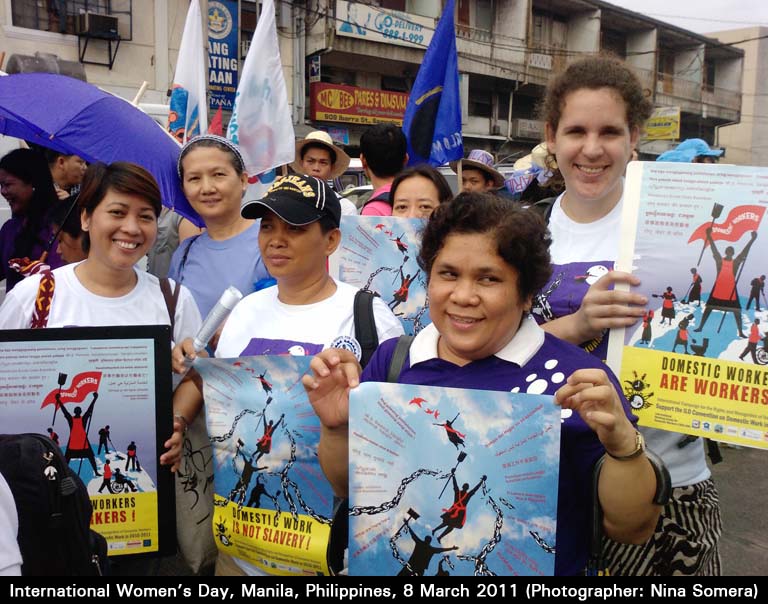
This long overdue recognition of domestic work as work legitimizes the claims of domestic workers to dignity in the workplace, respects their labour rights, and renders them visible to authorities tasked with ensuring that labour standards are enforced. This Convention recognizes the need for a reinvention of the way our societies view domestic work. Employers have a range of ideas about who domestic workers are – they are variously seen as ‘servants,’ ‘helpers,’ ‘caregivers,’ ‘maids,’ and even ‘members of the family.’ Few recognize the inherent problems with these labels. Casting domestic workers as anything other than workers invites employers and states to justify all manner of unjust, disrespectful, undignified, inhuman, violent, and now illegal treatment to which workers in other sectors are not subjected.
The emergence of the modern informal sector is a response to the rise of the neoliberal economic system, which relies on the exploitation of low–skilled and marginalized workers for its survival. Workers have long struggled to realize their rights under this system with the consistent support of the ILO. The recent economic crisis has thrown world economies into chaos, adversely affecting the lives of millions of workers. This Convention represents the hope of those workers who continue to struggle that their rights to decent work will some day also be realized.
The establishment of this Convention is a milestone in the long struggle for women’s rights. It challenges the notion that women domestic workers simply carry out the caring functions for which they are naturally suited, and for which the normal rules governing work should not apply. It is a step towards remedying long–standing stereotypes and inequalities by setting minimum standards of employment and affording due consideration of the feminization of this work force.
Labour unions, workers’ groups, women’s groups, social movements, and other civil society actors must understand this as an opportunity to reinvent themselves. The Convention opens the door for these groups to come together to develop new strategies for organizing, freedom of association, collective bargaining, and advocacy for rights at work.
While we celebrate this historic moment, we also know that there are many challenges to face in our struggle to ensure that these rights, now enshrined in Convention form, are upheld, protected, and defended. To seize this opportunity, we call on all advocates to use the Convention as a tool to advocate for the long overdue rights of domestic workers, to raise consciousness of the need for social change, and to make meaningful improvements to the lives of domestic workers, reaffirming that Domestic Work is Work, Domestic Workers are Workers, and Domestic Work is not Slavery!
 Migrant Forum in Asia
Migrant Forum in Asia

Related Articles:
 Home | Aims and Objectives of Solidarity Philippines Australia Network | About Kasama
Home | Aims and Objectives of Solidarity Philippines Australia Network | About Kasama 
Search the SPAN Web